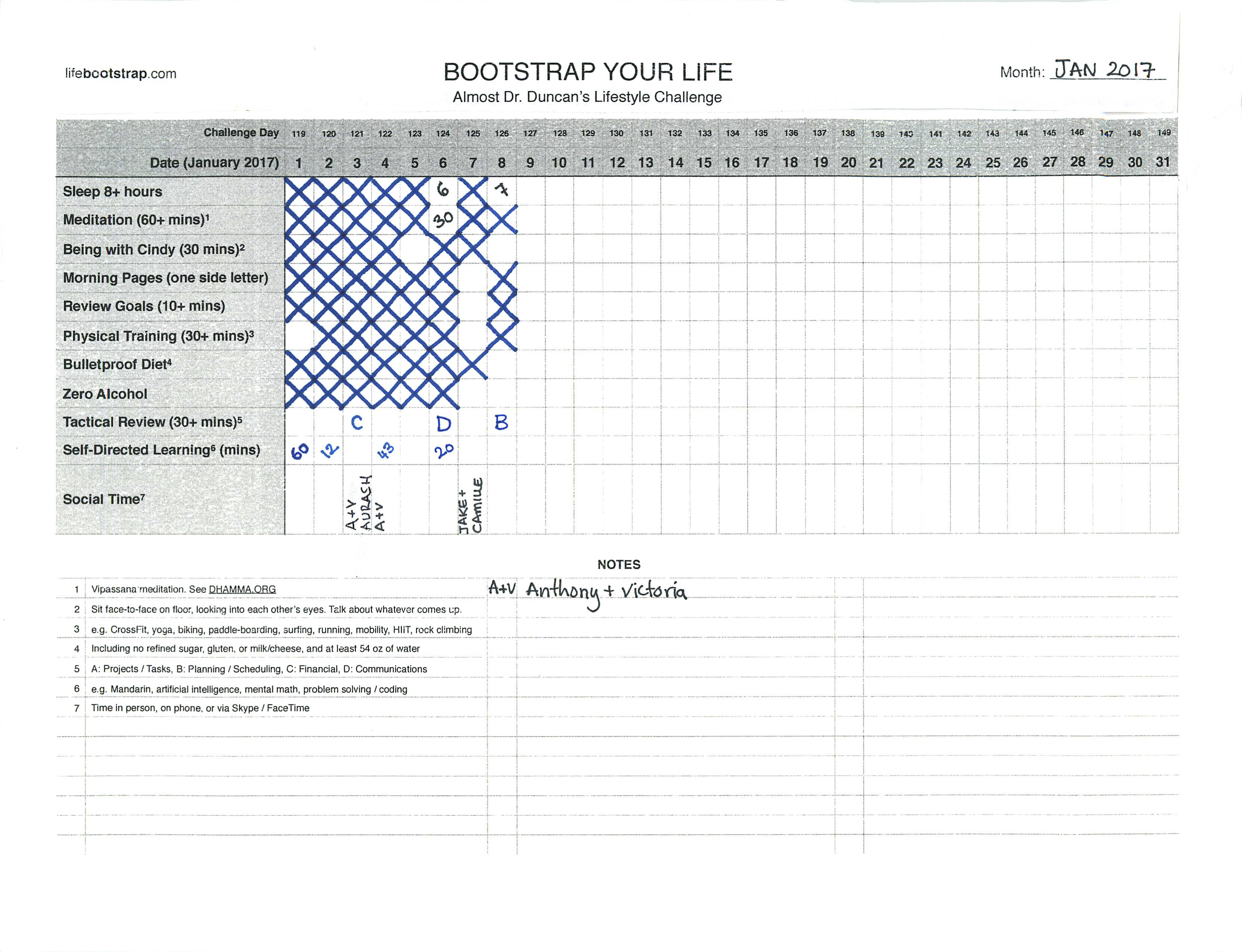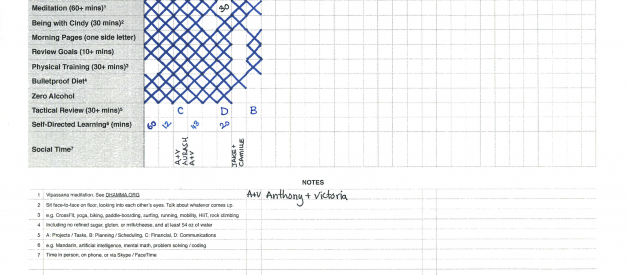You know that feeling you get between 2 p.m. and 4 p.m. every day, that tired feeling where you don?t want to do anything? You want to lie down and sleep, but you have to work, or at least you have to pretend to work? That?s a carb crash. I used to get carb crashes every day, all day long. They?re no fun. They make life really hard.
The worst thing is that they?re normal. Everyone gets sleepy after lunch, right? That?s why those smart Spanish folks take siestas, right? Well, it turns out that even though carb crashes are normal, common, and expected, they?re absolutely not healthy or necessary.
The truth is that you?re supposed to feel sharp, motivated, even excited about performing optimally from the time you wake up until the time you fall asleep. In this little guide, I?m going to enlighten you a little bit about this phenomenon, if you?re not already aware of it, and preach to your choir if you already are.
Our entire society is addicted to refined sugar. Take a look at the ingredient list on pretty much any package in your local grocery store. You will find refined sugar, of one kind or another, in everything. The sugar industry and the food industry are giving us what we ask for, what we crave. What we crave is sugar. Rats agree. In a study, rats preferred sugar over cocaine.
What does sugar do? It spikes our blood glucose level, which causes our pancreas to pump out insulin, which causes our blood sugar to drop. This makes us feel sleepy and unable to focus, which makes us crave sugar again. Most people are in a constant battle to get back to feeling normal?no different from heroin addicts.
Often, when I bring this topic up, there is a lot of resistance. The reason seems to be that most of the people in our society are in denial about their addiction to sugar.
Bread is also sugar, and so is pasta
Perhaps you?re thinking that you can cut out refined sugar but still eat bread and pasta (or bananas for that matter). Good luck with that. Try eating a plate of pasta at lunch and then working for the afternoon. You?re going to want to sleep. It?s okay to want to sleep, but don?t you want to kick ass, take names, and sign contracts?
Bread and pasta, apart from being made from grains, and containing gluten, (which represent a whole other set of problems), are generally extremely high glycemic index foods. This means that shortly after eating them, your blood glucose level will shoot up. Your body will then overcompensate with insulin to bring the blood glucose level down. When your blood glucose level tanks, you?re going to feel really unfocused, unmotivated, and start to fall asleep.
By the way, potatoes and corn are also your enemy for the same reason.
The more sugar you eat, the more sugar you need
There?s this little thing called insulin resistance. This is where your body is pumping out so much insulin that your cells stop responding to insulin. Your cells become desensitized. This drop in insulin sensitivity, known as insulin resistance, means that your cells need to detect more insulin before they uptake the glucose in your blood.
Your body?s solution to insulin resistance, given that you keep gorging on sugar, is to generate more insulin. The pancreas has to produce more and more insulin in a desperate attempt to try to get your blood sugar down so that the blood vessels in your retinas, for example, don?t get damaged. That?s not the only thing that gets damaged by poorly regulated blood sugar, but it?s the thing that makes my toes curl the most.
So now the pancreas is pumping out more insulin, and the cells that respond to insulin are becoming even more desensitized to it. This cycle of needing more and more insulin to regulate blood sugar is insulin resistance.
It gets worse
I?ve spent the last couple of summers in Europe, where I ate a lot of bread (I?m British) and a lot of pasta (but I?m not Italian). I came back with a gut. I was a skinny guy with a bit of a gut. That kind of gut, the one where you look pregnant, is caused by visceral fat. That?s fat collected around your internal organs. An excess of this fat messes with your ability to feel hungry. The fat cells? over-production of the hormone called leptin results in leptin resistance. Leptin tells you that you?re satiated. When you body becomes resistant to leptin, you feel hungry all the time. So insulin resistance leads craving and visceral white fat accumulation, which leads to leptin overproduction, and leptin resistance, which in turn leads to hunger, craving, and more eating.
This whole cycle of hormone imbalances caused by chronically imbalanced hormones, triggered by biologically extreme circumstances (onslaughts of high glycemic index foods), leads to metabolic syndrome, which is characterized by:
- abdominal obesity
- elevated blood pressure
- elevated fasting plasma glucose (aka pre-diabetes / insulin resistance)
- high serum triglycerides (from an overwhelmed liver)
- low high-density lipoprotein (HDL) levels (the ?good? carrier of cholesterol)
The path from metabolic syndrome to cardiovascular disease and type two diabetes is a short one.
Depression and your gut
It?s hard to be motivated and productive when you feel like shit even when you?re not carb crashing. A diet high in sugar and simple carbs feeds the kinds of gut bacteria that make you feel anxious and depressed. Also, both the metabolization of sugar is inflammatory, and the visceral white fat that accumulates around the internal organs promotes a systemic inflammatory response. Depression is also thought by some experts to be closely related to system inflammation. The placebo response has been found to be most effective with inflammatory diseases, and depression also responds strongly to placebos, possibly because the placebo response reduces systemic inflammation.
Breakfast: the most important meal of the afternoon
I?m sure we all remember hearing at some point that breakfast is the most important meal of the day. What do people eat for breakfast? Often, it?s toast, pastries, bagels, or grain-based cereal with sugar or honey in it. Often some or most of what is eaten for breakfast is high glycemic index carbohydrates. This gives you a big blood glucose spike first thing in the morning, and then an almost immediate crash. It sets the day up for a long, repeating cycle of craving, eating, spiking, and crashing. We?re a society of drug addicts teetering from one snack to the next, trying to focus on work between hits.
I don?t break my glucose fast until about 2 p.m. Meanwhile, if I feel hungry, I might have a cup of coffee with grass-fed butter and MCT oil whisked into it. That stops me feeling hungry and it gives me ketones for energy without raising my blood glucose levels at all. I am able to focus and be productive, without craving or needing to snack all morning. When I do eat, it?s mostly tasty and healthy fats, moderate amounts of high-quality proteins, and relatively small amounts of low glycemic index carbohydrates. The result is that my blood glucose increases minimally, and my pancreas has to produce only tiny amounts of insulin to keep my blood sugar level constant. I don?t get any overshoot, and I don?t get any crashes.
I am able to stay productive and focused all day this way. I?m grateful to Dave Asprey, the creator of The Bulletproof Diet, for explaining all of this in his book and podcasts in a way that convinced me. Yes, he?s a great marketer, and I think he also has positive intentions and wants to help make the world, and our lives, more enjoyable.
Everything in moderation
Look, you don?t have to give up carbs. Also, don?t go nuts with it and never eat carbs. Just increase your awareness of what you?re eating and start being sensible about this. Fires are good. Fires are fun. Have a campfire every now and then. Have a fire on the beach. But don?t set fire to everything. On the other hand, don?t shun fire and freeze to death when you need it.
You need carbohydrates to make tears. Cry a little. Cry tears of joy for the fact that you can actually enjoy your job every afternoon, instead of wishing that you were at home in bed, sleeping your life away because you just hammered your pancreas with a pound of mashed potatoes. You need carbohydrates to make melatonin, so you can sleep soundly at night and wake fresh and ready to not have a carby breakfast. Eat small amounts of carbohydrates, and eat them towards the end of the day, when any carb crash you might experiences is going to conveniently coincide with your bedtime.
I still eat potato chips sometimes. I eat french fries sometimes. What I don?t do is pound carbs down all day long in a never ending cycle of addiction.
Conclusions
- Eat more healthy fats, especially saturated fats and omega-3 polyunsaturated fatty acids. For example, eat grass-fed butter, avocados, cacao butter, and eggs from chickens that live in pastures.
- Try to eat zero refined sugar, if possible.
- Avoid high glycemic index foods containing quickly digested carbohydrates.
- Eat carbs later in the day and in moderation.
Call to action
- Give this article some claps, so that other people on Medium will be more likely to see it, and so that I will know how much you really love me.
- If you think I?m cool in a more general sense, then please come and grab a copy of my free lifestyle challenge grid, so that you can start taking charge of your health and wellbeing today. You?ll also get my monthly inspiring email.



